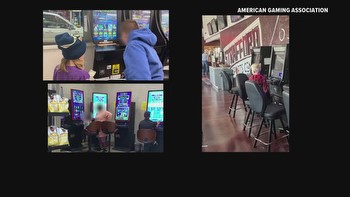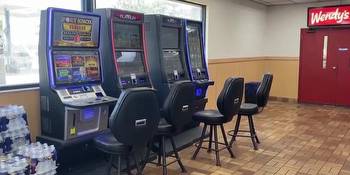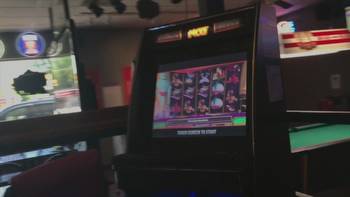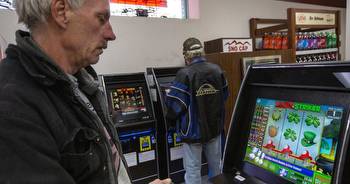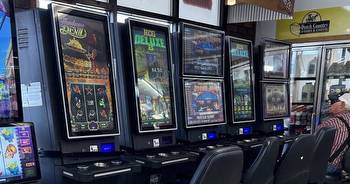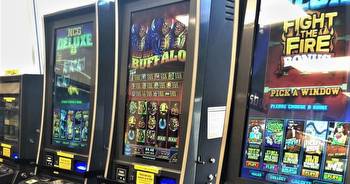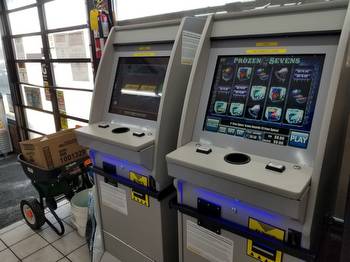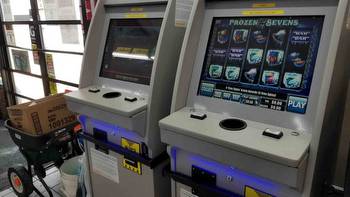Few charges result from scores of Missouri highway patrol gambling investigations

During 2019 and 2020, the Missouri State Highway Patrol delivered almost 200 cases to local prosecutors alleging violations of state gambling laws.
But according to state court data, only about two dozen cases have actually been filed. In most counties with alleged violations – including eight of 13 with five or more cases – prosecutors have not filed any charges.
As a result, thousands of video gaming machines that pay a cash prize to winners and are not regulated by state gambling officials remain in use in convenience stores and other locations.
Prosecutors around the state have a variety of reasons for deferring on charges, ranging from incomplete investigations to legal uncertainty to a belief that the games do not break any existing state law.
In St. Charles County, where the patrol sent Prosecuting Attorney Tim Lohmar’s office two cases in 2020 and four in 2019, staff prosecutors disagree about whether the games are illegal.
“If the people at the table couldn’t come to a consensus if these are legal or illegal, how in good conscience can we bring a case to a jury?” Lohmar said in an interview last week.
On Tuesday, the Senate Economic Development Committee will hear presentations from the Missouri Gaming Commission and the Missouri Lottery Commission on economic issues related to gambling. The committee’s chairman, Republican Sen. Denny Hoskins of Warrensburg, said the issues include how or whether to implement sports betting in the state, and how much the unregulated machines are diverting from education programs supported by casino taxes and the lottery.
“The intent is to just have those two testify and bring us up to date on where gaming is in the state,” Hoskins said.
Hoskins has previously estimated that there are as many as 15,000 so-called “gray market” games in use in the state. They are not regulated by the gaming or lottery commissions. The most common type is what vendors who market the machines call “no chance gaming” because a player can find out if their next bet will win, with a chance to withdraw their money if they please.
With lawmakers failing for three consecutive years to revise state gambling laws to either regulate or outlaw the machines, their future is being played out in the courts. Along with criminal cases, one of the biggest vendors in the market, Torch Electronics, has sued to block law enforcement.
The vendors have also engaged in aggressive lobbying campaigns and made big political donations to protect their business. Torch and Warrenton Oil, who together are suing to stop enforcement, donated $350,000 in June to six political action committees tied to Steve Tilley, a lobbyist who represents Torch.
Tilley is a former House speaker who is also a fundraiser and close adviser to Gov. Mike Parson
While a handful of local police agencies have taken an aggressive approach – most notably in Linn County, where the prosecutor has filed three felony cases based on investigations by the Brookfield Police Department – the patrol has taken the lead in cracking down on the machines.
The next case likely to go to trial in criminal court will be in Linn County.
The Independent used Sunshine Law requests to obtain records related to the number of probable cause statements filed by the patrol – the only statewide law enforcement agency – as it investigates possible illegal gambling. The records show that from the start of 2019 to mid-2020, the patrol submitted 180 statements to 56 local prosecutors.
Probable cause statements accompany case files and evidence submitted to prosecutors. They summarize evidence of a crime and why the investigating officer believes a suspect or suspects is responsible. The statement must accompany formal charging documents for any criminal case.
Records obtained from the Office of State Courts Administrator, however, show that cases alleging violation of state gambling laws have been filed in only 17 counties since the start of 2019. The list includes 22 misdemeanor charges and four felonies.
Along with St. Charles, the counties where the patrol delivered five or more probable cause statements without any resulting charges are Boone, Buchanan, Greene, Jefferson, Phelps, Pulaski and St. Francois.
The Independent reached out to those jurisdictions and received a variety of reasons for the decision not to file charges.
Buchanan County Prosecuting Attorney Ron Holliday said he was waiting for the outcome of a felony case that resulted in conviction last year in Platte County.
“I have asked for an update from the Highway Patrol on the submissions they have made previously to our office and we will review them when we receive that update,” Holliday said.
In Phelps County, prosecutor Brendon Fox said he doesn’t think a crime was committed.
“I am of the opinion that the machines are not games of chance,” Fox wrote in an email. “If/when an appellate court, or the state legislature, tells me otherwise I will be happy to change my position and prosecute the cases.”
One reason many of the cases investigated in 2020 were not filed is that access to the courts was limited because of COVID-19, said Dan Patterson, Greene County prosecuting attorney and president of the Missouri Association of Prosecuting Attorneys.
Another is that a prosecutor must become familiar with the machines to be able to argue why they are illegal if charges are filed, he said.
“You have a novel area of the law where you have companies who are trying to look at the law and find a loophole to make their machines not fall into the proscriptions of the law,” Patterson said.
The Attorney General’s office should develop the expertise and take the lead on gambling prosecutions, Patterson said.
“This is one where we really have a statewide issue that would be much better dealt with in a statewide manner,” he said. “Earlier this year I did request the Attorney General’s assistance in this area. They said that because they had entered into the Cole County civil case they could not do that.”
Torch Electronics is suing the patrol and the Department of Public Safety to block its investigations.
In some cases, more investigation is needed, Patterson said. That is the case after recent highway patrol raids in his county.
In June, the patrol raided two locations in Springfield, seizing 15 machines at one location and 35 at another. The investigations are not complete and Patterson is fighting to enforce his subpoenas for documents, including financial information, from Torch Electronics.
“Compliance with the subpoena would be unreasonable and oppressive, as Torch would be compelled to produce documents that could not possibly lead to relevant evidence in any criminal investigation,” attorney Chuck Hatfield wrote in the motion to block the subpoenas.
The machines are not gambling devices, he wrote.
“By definition, individuals cannot gamble on Torch’s amusement devices – which the subpoena repeatedly refers to as ‘no chance’ gaming machines,” Hatfield wrote.
In response, Patterson noted the similarity between Torch’s device and a game that resulted in a felony conviction in Platte County.
He also noted that Torch is preparing for a felony trial in Linn County and the June raids were used search warrants signed by a Greene County judge who found probable cause that a crime was being committed.
The subpoenas must be honored, Patterson’s motion argued, “if there is even a reasonable possibility that the materials sought are relevant to the general subject of the investigation.”
Torch is moving to protect the flow of cash from the machines, which is potentially huge but unknown because there is no public accounting of the money spent in the gray market machines.
Legal casinos report in detail how many machines and table games they operate, how much money is handled and how much the casino retains. In the fiscal year that ended June 30, 27.6 million people visited the 13 casinos and left behind $1.3 billion.
The casinos paid $362.5 million in taxes and $55.2 million in boarding fees.
In fiscal 2020, the lottery sold $1.5 billion in tickets, netting $333 million for education programs.
The state must capture revenue from sports betting originating in Missouri, Hoskins said. And it must deal with the gray market games.
Under the constitution, he noted, state revenue from gambling is dedicated to education and veterans programs. The gray market games do not contribute to that, he said.
He thinks a fourth attempt in the 2022 legislative session will succeed.
“We have a great chance of getting something passed,” he said. “A lot of eyes are on those cases moving through the court system so the courts can determine what is legal and illegal in the state of Missouri.”








